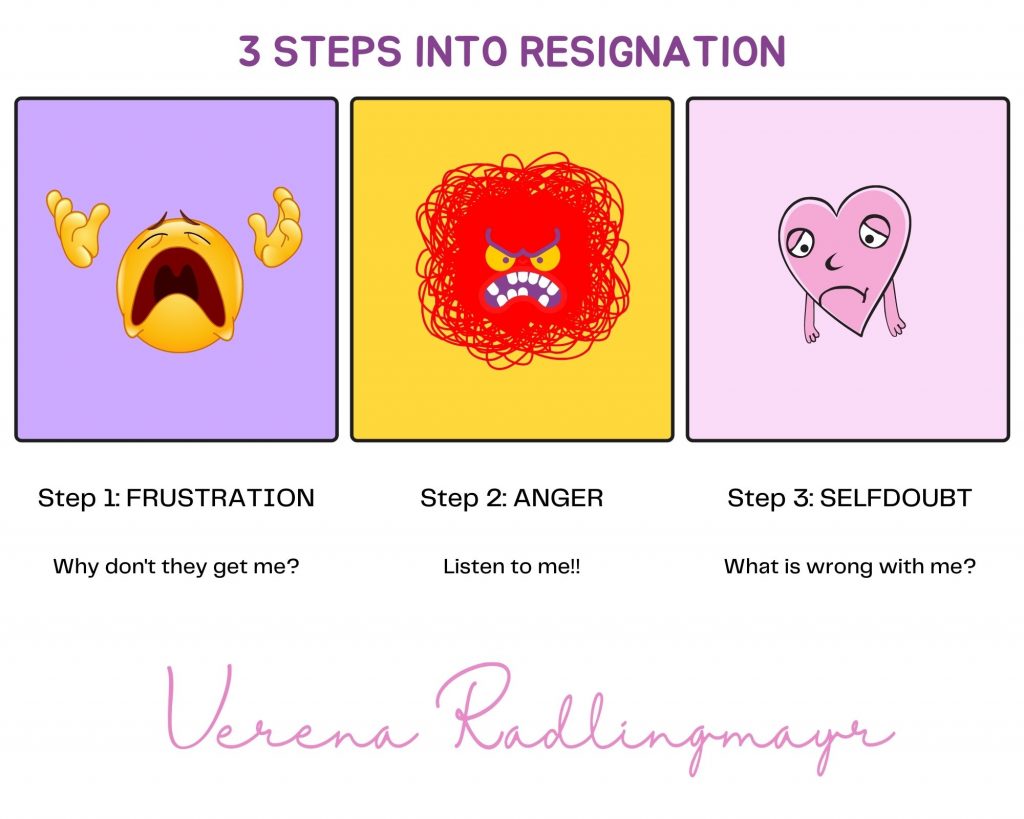The other day I had a nice conversation with a good friend – yes, a real conversation, live and in colour. It was a dream. It was the cherry on the cream cake without calories. We talked about how we were doing, what was moving us. And then finally came to a completely different topic. Perception. Her daughter is very sensitive, just like me. And while we were talking, something shouted loudly in my face: Hello, are you listening? Are you hearing what the world out there needs?
An explanation.
I’m going to, and I’m going to have to elaborate a bit, but one thing right away: this sensitivity is the rule – all children, or at least 98% of children, have it. Check it out for yourself with these questions:
- Has your child ever claimed to see something or someone invisible in the room?
- Does your child know that the domestic situation is difficult, even though you and your husband are trying so hard not to let on?
- Have you ever been able to see in your child’s eyes that you have hurt him with an untruth?
- Does your child sometimes get agitated, especially after contact with others?
A yes does not indicate that your child has unusual abilities, it merely shows that he or she is a normal, healthy child. A lot has changed from our childhood to the present day and one of these developmental steps is reflected in the children’s perceptual competence.
Adults have to get used to this expanded perception. We are supposed to realise that we are a little colour-blind. And that children can usually see many, many colours.
We have to get used to a new norm, a new world: the colourful world as perceived through childrens’ eyes.
Dr. Verena Radlingmayr
What perception is not
In NLP and also from recent history we learn that labels or stigmata are misleading. Very often the label, the diagnosis is so powerful that it becomes difficult to deal with a situation in a healthy way without the help of experts. Even awards and praise get a big fat minus from brain researchers (Dr. Gerald Hüther) and attentive observers.
Perception, in whatever form, is neither a problem nor a gift. Perception is not a label, it is a fact. An emphatic, sensitive child doesn’t need tranquillisers or a therapist to help him with it. We simply have to get used to a new norm.
‘Don’t be so supersensitive!’
The colour-blind adults don’t understand why their child is upset. This leads to frustration, anger, and sooner or later self-doubt in children. Why don’t they understand me? Listen to me already!!!! What is wrong with me?
Resignation and depressed self-esteem are then the logical consequences.

It’s not the child who is overly sensitive, it’s you who is under-talented. You wouldn’t tell him: don’t be so good at maths just because you don’t have a clue about integral calculus. Do I have to understand maths to love a maths genius?
It’s not the child who is overly sensitive, it’s you who is under-sensitive.
Dr. Verena Radlingmayr
Admittedly, maths has less direct relevance in everyday life. But even a maths genius needs encouragement, support, someone to share their enthusiasm without understanding the details.
Green or gray?
Both. Something can be green and grey. Just as a white cat is grey at night, and yet remains white. In quantum reality, each thing has the property that the observer gives it. There is no absolute truth.
That’s why it’s so hard to act on this reality: because logic, experience and reason don’t help. And because in our technological world, there is neither room nor breeding ground for the feminine, the gentle, the intuitive. Or so it seems.
But then you see a mother who can do it. A father who can. And you believe in goodness again.

MAG. DR. VERENA RADLINGMAYR
